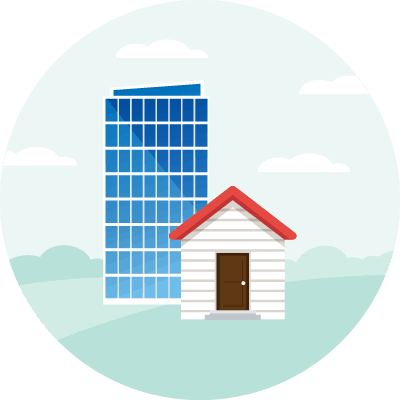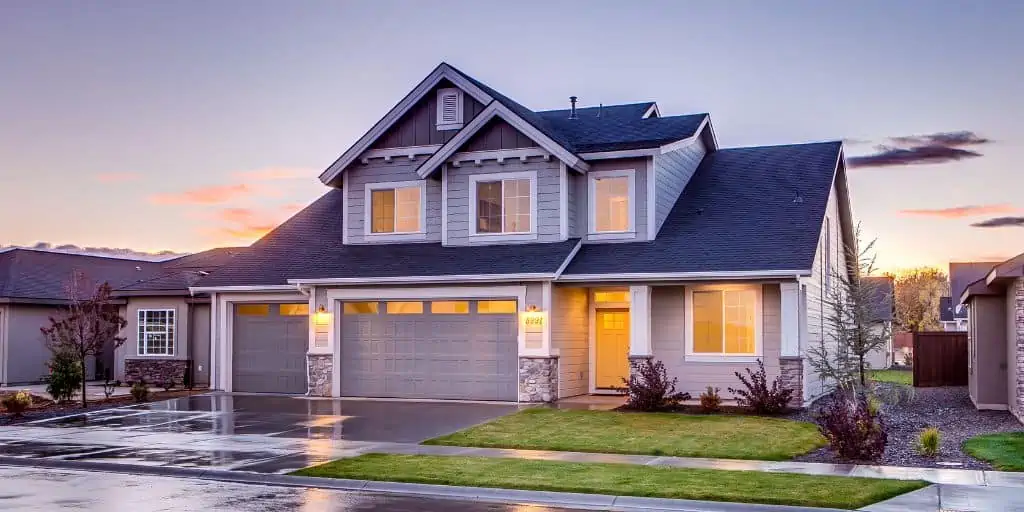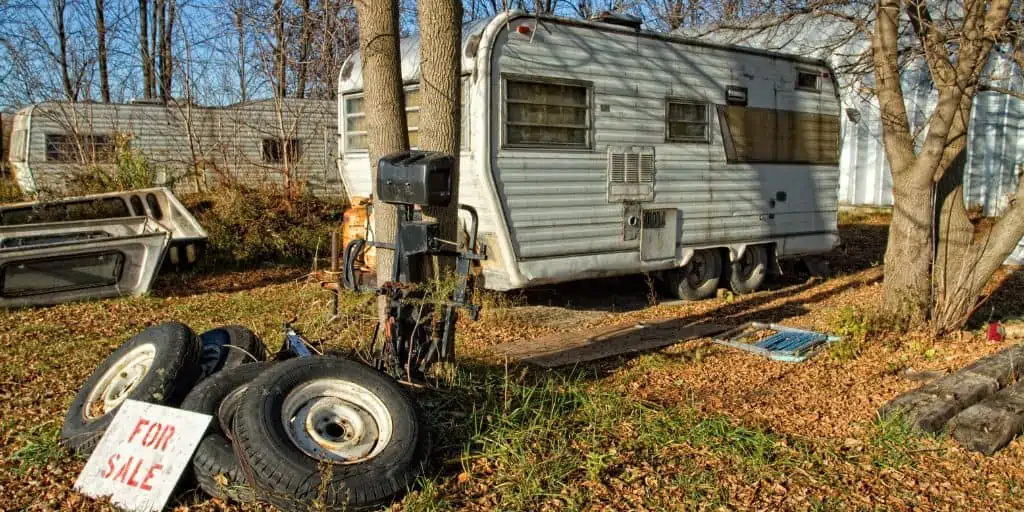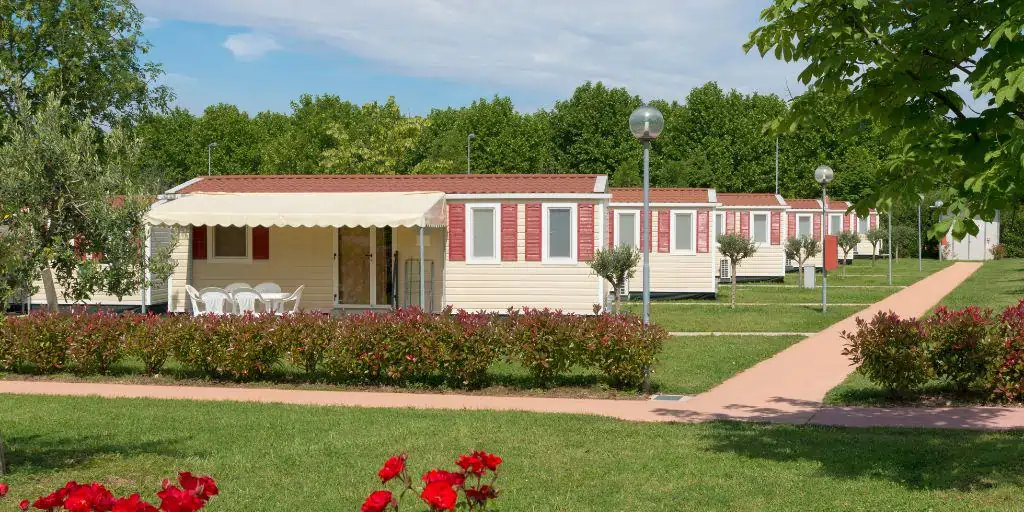What Is a Mobile Home Park?
An Overview of Mobile Home Parks
A mobile home park is a parcel of land subdivided into separate, smaller lots. Each space or lot is developed for manufactured housing, typically featuring a driveway and a utility pedestal. Residents in mobile home communities rent or lease a space in a mobile home park[1]. Some mobile home parks may include recreational facilities or community clubhouses, but these exceptions are not the rule[2].
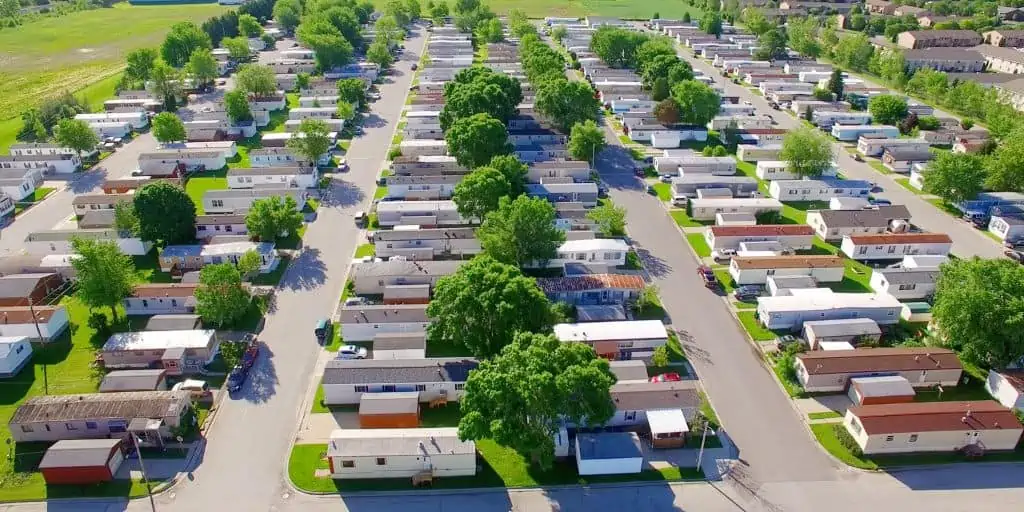
Mobile homes are a subcategory of prefabricated homes, which include manufactured housing and modular homes. However, even as the term “mobile home” remains widely used, the 1980 Housing Act mandated replacing all that term in government literature with “manufactured homes,” as the manufactured housing in mobile home parks is very rarely mobile[3].
In any case, most prefabricated homes are factory-built, unlike traditional homes built on-site. One notable difference between a true mobile home and other prefab homes is that the former is built on a permanently attached trailer chassis. This allows the owner to move the dwelling to its designated location, usually a mobile home park.
Before 1976, trailer or mobile homes were mass-produced with little government control over building regulation[4]. This often blurs the distinction between a mobile home park and a trailer park.
BY THE NUMBERS: There are approximately 43,000 mobile home parks across the U.S.
Source: Forbes
Mobile Home Park vs. Trailer Park
The cultural connotation of a “trailer park” is often negative, usually referring to impoverished people in the mid-20th century who could not afford suburbanization[5]. This has resulted in many mobile home park owners rehabilitating their image and raising rents in hopes of creating mobile home communities without the lower-class stigma of stereotypical mobile home parks. With new tenants who can afford more rent, owners can improve their parks while offering relatively affordable housing.
Today, the terms “mobile home park” and “trailer park” may seem to refer to the same thing, but there are important nuances regarding the different parks’ usage[6]. For example, mobile home parks are generally what people think of when the term “trailer park” is mentioned, while trailer parks are more recreational and itinerant in nature.
Here are some of their more significant differences.
Build and Design
A mobile home park is designed to accommodate factory-manufactured movable structures that serve as a more permanent residence than trailers. Special permits, vehicles, and professionals are required to move these mobile homes.
Meanwhile, trailer parks take in movable, factory-built homes designed for moving around constantly. When parked in one spot for too long, the mechanical components of these movable homes may deteriorate. These manufactured homes can be moved by trucks or other vehicles at a moment’s notice.
Stability and Commitment
Mobile home parks expect their tenants to stay longer than those in trailer parks. Relocating from a mobile home park is more expensive and time-consuming than moving a trailer home. In addition, there is more stability in a mobile home park since tenants typically sign a long-term rental agreement.
By contrast, the occupants of trailer parks travel most of the time either for business or leisure and may have permanent homes to return to. Trailer park occupants only mean to stay temporarily, some even just overnight.
That said, some owners of mobile homes may choose to rent out their homes as vacation rentals. However, not all mobile home park owners allow the practice of sub-leasing.
BY THE NUMBERS: Colony Ridge in Liberty County, Texas is the current U.S. record holder as the largest mobile home park, covering more than 10,000 acres.
Source: Reduce Flooding
Eviction
Evicting a tenant in a mobile home park is longer and more involved than the process followed in a trailer park. Tenant eviction in a mobile home park can take weeks or months. This is because a lease term is included in the tenancy contract of a mobile home park. There is no limit to the lease term as long as the parties agree[7].
There is no such eviction process in a trailer park. The owner may expel the trailers immediately, as they are more akin to guests than tenants.
Management and Maintenance
The maintenance of the home site in a mobile home park is the tenant’s responsibility. The park’s management mainly looks after the common facilities of the property. While technically renters, mobile home residents are responsible for their own upkeep.
Trailer park management is more hands-on, as tenants leave the property regularly. The property’s staff must make rounds when a trailer leaves and ensure the facilities are ready for the next visitor.
Rent and Other Fees
The tenants of a mobile home park pay rent to the park owner. In addition, they may also pay other fees such as utilities, common area maintenance, and homeowners’ association dues.
In trailer parks, the utility costs are typically bundled into the rental fee.
Typically, a mobile home park will also have fewer amenities than a trailer park. This is because a trailer park’s primary use is for short-term vacations that usually require recreational facilities.
BY THE NUMBERS: Texas holds the U.S. record of having the highest number of mobile homes, with 137,460.
Source: Statista
Mobile Home Park Market
An estimated 17.7 million Americans live in mobile home parks, representing 5.6% of the population[8]. These residents cite several advantages[9] of a mobile home lifestyle, such as:
- Affordability. Renting a space in a mobile home park can be cheaper than buying a home lot. For instance, the owner of a mobile home does not have to pay a property tax or incur land development costs. With soaring property prices and rent increases across the U.S., it’s hard to find more affordable housing than in mobile home parks.
- Development theme choices. Age-restricted or 55+ neighborhoods are typical development themes for many mobile home parks. This setup appeals most to retirees on fixed incomes who want a quiet community with residents belonging to their age bracket.
- Community-driven. Many mobile home parks are family-oriented, creating an ideal environment for raising children. This can be achieved in a mobile home park with management implementing strict background checks and security measures.
- Convenience. Mobile home park developers seek to attract quality tenants by picking convenient sites, in proximity to public transport terminals, supermarkets, schools, churches, and the like.
Drawbacks of a Mobile Home Park
Certain drawbacks to mobile home parks can inhibit their growth.
One is that from an investor’s point of view, mobile home parks offer less potential for appreciation. Since mobile homes are similar to cars in that they are classified as personal property than real property, they generally depreciate rather than appreciate[10]. The owner of a mobile home park can force value appreciation only by investing heavily in upgrades to the park or the lot itself, like better infrastructure, landscaping, or amenities[11].
Another is the stigma[12] attached to residents in mobile home parks, as discussed above. There is a strong perception in America that those who live in mobile homes are “trailer trash,” owing to the tendency of mass-produced, cookie-cutter mobile homes to be made of lower quality than traditional homes[13]. With residents responsible for their own property maintenance, the aesthetic of mobile home parks is somewhat at the mercy of the people who live there.
Takeaways
- A mobile home park is a subdivided piece of land where the lots are rented out to owners of mobile homes.
- Mobile home parks are similar to trailer parks, but mobile home parks are more permanent in nature, whereas trailer parks are itinerant and recreational.
- Mobile home parks account for a significant slice of the U.S. housing market because of their affordability, but this is also a huge contributor to the public perception that only impoverished, low-class people live in these manufactured housing communities.
Sources
- Vactor, W.V., (n.d.) Buying a Mobile Home Instead of a Regular Home: Pros and Cons. NOLO. Retrieved from https://www.nolo.com/legal-encyclopedia/buying-mobile-home-instead-regular-home-pros-cons.html
- Kaelin, A. S. (2019.) What You Should Know as a Mobile Homeowner. Allen, Semelsberger & Kaelin LLP. Retrieved from https://www.asklawgroup.com/News-Blog/2019/August/What-You-Should-Know-as-a-Mobile-Homeowner.aspx
- Kaufman, T. (2009.) Chapter 1: Housing History and Purpose. Centers for Disease Control and Prevention. Retrieved from https://www.cdc.gov/nceh/publications/books/housing/cha01.htm
- Gritton, R. (2017.) Mobile vs Manufactured vs Modular vs Park Homes. Homes Direct. Retrieved from https://www.thehomesdirect.com/blog/mobile-vs-manufactured-vs-modular-vs-park-homes
- Brunkowski, J., Closen, M. (2017.) Don’t Call Them Trailer Trash: The Illustrated Mobile Home Story. ISBN 0764352334. Schiffer Publishing.
- Leighton, D. (2018.) What Is the Difference Between a Mobile Home Park and a Trailer Park? MHomebuyers. Retrieved from https://www.mhomebuyers.com/mobile-home-vs-trailer-park/
- Bray, I. (2021.) Leasing a Mobile Home or Space in a Mobile Home Park: Legal Issues. Lawyers.com. Retrieved from https://www.lawyers.com/legal-info/real-estate/landlord-tenant-law/leasing-a-mobile-home-and-mobile-home-park-space.html
- Vuleta, B. (2020.) 6 Remarkable Mobile Home Statistics You Need to Know. Movity. Retrieved from https://movity.com/blog/mobile-home-statistics/
- Adkins, C. (2014.) Advantages and Disadvantages of Mobile Home Parks. Mobile Home Living. Retrieved from https://mobilehomeliving.org/advantages-and-disadvantages-of-mobile-home-parks/
- US Mobile Home Pros. (2019.) WHY DO MOBILE HOMES DEPRECIATE IN VALUE? Retrieved from https://www.mobilehomesell.com/why-do-mobile-homes-depreciate/
- Sam O Financial. (n.d.) Cons of Investing in the Mobile Home Parks. samofinancial.com. Retrieved from https://www.samofinancial.com/pros-and-cons-of-investing-in-mobile-home-parks/
- Keel, A. (2021.) Five Reasons Why Mobile Home Parks In The United States Are Disappearing. Forbes. Retrieved from https://www.forbes.com/sites/forbesbusinesscouncil/2021/12/22/five-reasons-why-mobile-home-parks-in-the-united-states-are-disappearing/
- Miller, V. (n.d.) Is Living in a Mobile Home Trashy? Never Too Tiny. Retrieved from https://nevertootiny.com/are-mobile-homes-trashy/
